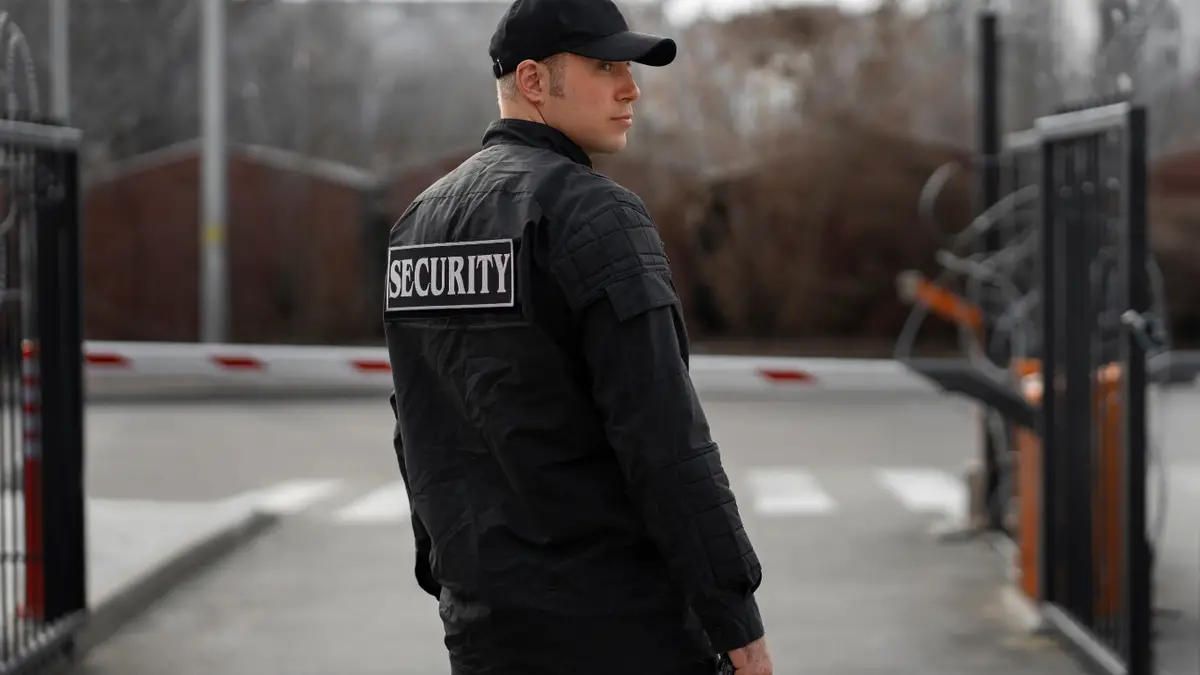Security guards are crucial in maintaining safety & security in various areas. Some specific laws and regulations in California dictate what security guards can and can’t do. Their authority and responsibilities are subject to legal restrictions, from commercial properties to events and public spaces. California’s security industry demands a nuanced understanding of these regulatory frameworks for security personnel and the public they serve.
Let’s explore what security guards can and can’t legally do in California, addressing common questions and concerns.
What Security Guards Can and Can’t Do in California?
California security guards have specific duties and responsibilities outlined by state laws and regulations. They are authorized to perform various tasks to maintain security and prevent crime, including access control, patrol and surveillance, crowd control, incident response, and property protection. Security guards can assist law enforcement officers and provide valuable support during emergencies.
However, security guards must operate within the confines of the law. They cannot exceed their authority by engaging in actions such as making arrests unless witnessing a felony in progress, using excessive force, or discriminating against individuals based on race, gender, or any other protected characteristic.
Additionally, they must strictly adhere to established protocols and procedures their employer or agency sets. Violating these guidelines can result in legal consequences, including civil lawsuits and criminal charges. Therefore, security guards in California must understand and abide by the laws governing their conduct to ensure they fulfill their duties lawfully and effectively.
Top 7 Questions Asked About Security Guards
You might have questions about security guards’ roles and responsibilities. Understanding the legal parameters within which security guards operate is critical, from whether they can use force to detain individuals to carrying firearms and conducting searches. Security guards in California can use reasonable force to protect themselves and others, but they must adhere to strict guidelines to avoid legal consequences. Understanding what security guards can and cannot do is critical for security professionals and the general public who want to ensure their safety and compliance with state regulations.
1. Can Security Guards Touch You in California?
California security guards are authorized to use reasonable force to protect themselves or others from harm. However, the use of force must be proportional to the threat faced, and guards must prioritize de-escalation techniques whenever possible. Excessive or unnecessary force can result in legal consequences for security guards and their employers.
2. Are Security Guards Allowed to Detain You?
Security guards do not have the same arrest authority as sworn law enforcement officers in California. However, under certain circumstances, they may arrest citizens if they witness any misdemeanor or felony offense being committed in their presence. The decision to detain an individual should be based on reasonable suspicion and must comply with legal requirements to avoid liability.
3. Can Security Guards Carry Guns in California?
Security guards can carry firearms while on duty in California if they meet specific training and licensing requirements outlined by state law. This includes completing a certified firearms training course, obtaining a firearms permit from the California Bureau of Security and Investigative Services (BSIS), and adhering to all relevant regulations governing the use of firearms by security guards.
4. Do Security Guards Have the Right to Arrest You?
Security guards in California do not have the authority to arrest individuals in the same manner as sworn law enforcement officers. However, they may arrest citizens under certain circumstances, such as witnessing a crime. To avoid liability, any arrests made by security guards must comply with legal requirements, including probable cause and adherence to procedural guidelines.
5. Can Security Guards Ask For Identification?
California security guards can ask individuals for identification to verify their identity and determine their authorization to access certain areas or facilities. However, individuals have the right to refuse to provide identification unless there is a lawful reason for the request, such as suspicion of criminal activity.
6. Can Guards Remove You From Private Property?
California security guards have the authority to remove individuals from private property if they are trespassing or violating property rules and regulations. However, the decision to remove someone should be based on valid reasons and conducted lawfully and respectfully to avoid legal repercussions.
7. Does a Guard Have the Right to Search You?
California security guards do not have the authority to search individuals or their belongings without consent or probable cause. Any searches conducted by security guards must comply with legal requirements, including obtaining consent or a warrant, to avoid infringing on individuals’ rights and potential legal challenges.
California security guards play an essential role in maintaining safety and security, but their authority and actions are subject to legal constraints. Knowing what security guards can legally do in California is necessary for security professionals and the public. Security guards create safer environments for all by operating within these legal boundaries.
At Ranger Global Security, we understand the critical importance of adhering to California’s legal constraints to ensure the safety of our clients. Our security guards are dedicated to upholding the highest standards of professionalism & compliance with state laws.
Contact Ranger Global Security today for reliable security guard services prioritizing legal adherence and safety.
